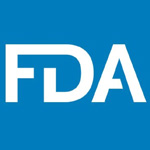Collagen
(Oral Supplements - Should you take collagen supplements?)
What is it?
Collagen is composed of amino acids (proteins). It makes up about three-quarters of your skin and is about a third of the protein found in your body. In technical terms, it’s the main structural protein in the extracellular matrix found in the body’s various connective tissues.
There are several “types” of collagen, but over 90% of the collagen in the human body is Type I. (There are at least 28 types of human collagen that have been identified.)
Type I comprises bone, organs, skin, tendons and vasculature.
(Supplement sources typically come from bovine and fish.)
Type II is cartilage, the main collagenous component of cartilage.
(Supplement sources typically come from chicken cartilage and joint.)
Type III is reticulate, the main component of reticular fibers, commonly found alongside type I.
(Supplement sources typically come from bovine.)
Type IV forms basal lamina, the epithelium-secreted layer of the basement membrane.
Type V is cell surfaces, hair and placenta.
According to the Harvard School of Public Health:
“Collagen first appeared as an ingredient in skin creams and serums. However, its effectiveness as a topical application was doubted even by dermatologists, as collagen is not naturally found on the skin’s surface but in the deeper layers. Collagen fibers are too large to permeate the skin’s outer layers, and research has not supported that shorter chains of collagen, called peptides, are more successful at this feat.”
Does it occur naturally in the body?
What are the claims?
Collagen supplements are marketed to help your skin regain its elasticity, look smoother, retain more moisture and recapture that youthful glow. It’s also promoted to boost muscle mass, stimulate hair growth, relieve joint paint, strengthen nails and even prevent bone loss.
Does it work?
Short duration studies with small groups of people (under 1,000 subjects) seem to show that collagen supplements can help relieve joint pain, increase skin hydration, improve skin elasticity and wound healing. Those studies are linked below.
HOWEVER, most studies showing benefit have been conducted on small groups of people, over short periods (1-3 months) by companies selling the supplements. Long-term studies (over two years) with larger groups of people (over 1,000 subjects) should be conducted. Researchers should be sure that supplements don’t interfere with natural collagen production, that they don’t build up or become toxic over time and that they continue to provide positive results.
Many supplements have shown promise in small and short studies but fail and prove dangerous or even deadly when taken over time. (See antioxidants, ginkgo biloba or resveratrol.)
There are also limited studies on how much collagen each person might need to take in as a supplement and how long it would last. No studies show that collagen supplements would be beneficial if your diet already contains enough from food sources.
Where does collagen come from?
Food sources of collagen include eggs, fish, pork, poultry and red meat. It’s also found in bone broth, dairy and gelatin.
You may see companies list things like legumes or soy (especially tofu) as a source of collagen, but that is misleading. Vegetables and fruits do not contain collagen, but they can stimulate your body to produce more collagen. Any product that contains collagen cannot be vegan.
(NOTE: Scientists are working on ways to genetically modify yeast and bacteria, such as bacteria P. pastoris, to create cruelty-free “vegan” collagen. However, these researchers must figure out how to make it for a reasonable price, and THEN they will have to conduct a few years of research to make sure it works the same as animal-derived collagen.)
Collagen supplements that you take orally typically come in powder or liquid form. They are broken down into amino acids in the gastrointestinal tract before reaching your bloodstream and used by your body.
These “reconstituted” proteins may not contain the same amino acids that you originally swallowed, and there’s no way of knowing where or how your body will use them. Companies claiming they can “target” specific areas of your body with their collagen pills, powders or liquids are lying.
What should you do instead of taking collagen supplements?
If your diet already includes plenty of collagen from food, you might be causing damage to your body with daily activities. Try the following suggestions.
AVOID
Alcohol
Eating Excess Sugar (No more than 40-60 grams of sugar a day depending on your body frame and musculature.)
Environmental Pollutants like Smog
Smoking
Sun Exposure or Ultraviolet Light
GET MORE
Sleep
Exercise
What are the dangers?
Long-term issues are unknown at this point because long-term studies have yet to be conducted.
Collagen supplements are made by grinding up fish, chicken, pig and cow parts like hooves, hides, bones and nerve tissues. Those products tend to act as sponges for contaminants and heavy metals. Consumer groups have expressed concern that they could carry diseases like bovine spongiform encephalopathy (BSE), also known as mad cow disease.
Because of rampant fraud in the supplement industry, if you are considering collagen supplements, you should look for brands that have been certified by independent third-party companies. When ConsumerLab.com tested 14 popular supplements for safety, one of the brands contained high levels of cadmium, a toxic heavy metal.
Look for certification by NSF or USP on the label. You shouldn’t put a supplement in your body that hasn’t been independently verified.
The Bottom Line
If your diet already contains adequate sources of collagen or if your body is already producing enough, taking a supplement hasn’t been proven to provide any additional benefit.
In 2014, the Nutrition Business Journal estimated consumers spent $50 million on collagen supplements. That grew to $293 million in 2020 and is projected to hit a remarkable $6.5 BILLION by 2025. With so much money being spent on these products, we are disappointed no company has conducted large-scale and long-term studies. It’s especially problematic because collagen supplement companies promote their products as something to take for the rest of your life without that critical long-term data.
Unless prescribed by a doctor for a specific medical condition such as wound healing or to help with bone growth, we cannot recommend collagen supplements. If your doctor has prescribed a collagen supplement, only buy products that have taken the extra step of receiving third-party certification from companies like USP or NSF. Avoid any supplements that suggest you take their product long-term (more than 1-3 months) that have not conducted long-term studies.
Reference Links:
A Review of the Effects of Collagen Treatment in Clinical Studies
Hsiuying Wang
Polymers, Published online 2021 Nov 9. doi: 10.3390/polym13223868
CONCLUSION: Collagen is the most abundant protein in the human body that has many multi-functions. The loss or defect of collagen can cause skin aging and other diseases. The collage treatments have demonstrated effective improvements in skin hydration, skin elasticity, medical scaffold treatment, GERD, OA and RA in many clinical studies. In addition, the collagen treatment for GERD in COVID-19 patients is also discussed in this study. Collagen therapy can reach good improvement and does not cause any serious adverse reactions. Collagen-based materials and products are the potential to be used in more applications, and they are the one of most important supplements for aging people.
A Collagen Supplement Improves Skin Hydration, Elasticity, Roughness, and Density: Results of a Randomized, Placebo-Controlled, Blind Study
Liane Bolke, Gerrit Schlippe, Joachim Gerß, and Werner Voss
Nutrients, Published online 2019 Oct 17. doi: 10.3390/nu11102494
CONCLUSION: This randomized, placebo-controlled clinical trial confirmed that skin aging could be addressed using nutrients that are able to restore skin hydration, elasticity, and density. Objective dermatological measurements, such as cutometry and corneometry, have proven that oral collagen peptides together with other dermonutrients significantly improve skin hydration, elasticity, roughness, and density after three months of intake. These tests thus verify the results obtained in previous trials. Moreover, and in line with the objective measurements, the study participants, in their subjective assessments, concluded that their skin appearance had significantly improved.
Oral Collagen Supplementation: A Systematic Review of Dermatological Applications
Franchesca D. Choi, Calvin T. Sung, Margit L.W. Juhasz, Natasha Atanaskova Mesinkovsk
Journal of Drugs in Dermatology, 2019 Jan 1;18(1):9-16.
CONCLUSION: Preliminary results are promising for the short and long-term use of oral collagen supplements for wound healing and skin aging. Oral collagen supplements also increase skin elasticity, hydration, and dermal collagen density. Collagen supplementation is generally safe with no reported adverse events. Further studies are needed to elucidate medical use in skin barrier diseases such as atopic dermatitis and to determine optimal dosing regimens. J Drugs Dermatol. 2019;18(1):9-16.
24-Week study on the use of collagen hydrolysate as a dietary supplement in athletes with activity-related joint pain
Kristine L Clark, Wayne Sebastianelli, Klaus R Flechsenhar, Douglas F Aukermann, Felix Meza, Roberta L Millard, John R Deitch, Paul S Sherbondy, Ann Albert
Current Medical Research and Opinion, 2008 May;24(5):1485-96.
Affiliated with: Department of Nutrition and Sports Nutrition for Athletics, Penn State University, University Park, PA 16802, USA. klc5@psu.edu
CONCLUSION: This was the first clinical trial of 24-weeks duration to show improvement of joint pain in athletes who were treated with the dietary supplement collagen hydrolysate. The results of this study have implications for the use of collagen hydrolysate to support joint health and possibly reduce the risk of joint deterioration in a high-risk group. Despite the study's size and limitations, the results suggest that athletes consuming collagen hydrolysate can reduce parameters (such as pain) that have a negative impact on athletic performance. Future studies are needed to support these findings.
Links for More Info
| Centers for Disease Control and Prevention http://www.cdc.gov/ |
|
| United States Food and Drug Administration (FDA) http://www.fda.gov/ |
|
| Herbs, Botanicals & Other Products - Extensive Information from the Memorial Sloan-Kettering Cancer Center https://www.mskcc.org/cancer-care/diagnosis-treatment/symptom-management/integrative-medicine/herbs |
|
| National Center for Complementary and Integrative Health - Overviews on Herbal Treatments and Supplements https://www.nccih.nih.gov/health/herbsataglance |
|
| National Institutes of Health http://www.nih.gov/ |
|
| National Institutes of Health - Office of Dietary Supplements https://ods.od.nih.gov/ |
|
| Operation Supplement Safety https://www.opss.org/ |
|
| United States Department of Agriculture http://www.USDA.gov/ |
|
| WebMD - Helping you make better decisions for life. http://www.webmd.com/ |
|
We at WeBeFit DO NOT recommend ANY supplements to ANY of our clients. ONLY a licensed Nutritionist or Medical Doctor can make those recommendations based on your individual needs.
This is being provided for INFORMATIONAL and EDUCATIONAL purposes only.
CAUTION: These supplements have not been evaluated by the Food and Drug Administration (FDA) for safety, effectiveness or purity. There may be unknown risks associated with taking any supplements. There are no regulated manufacturing standards for companies that make supplements. There have been instances where herbal or health supplements have been sold that were contaminated with toxic substances. If you should choose to purchase herbal or health supplements, please only purchase them from a reliable source to minimize the risk of contamination.
If you should decide to use ANY supplement, ALWAYS consult your doctor or Nutritionist first.
1/18/2022











